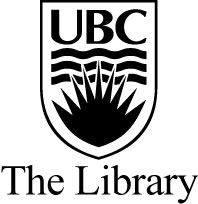Note to users: Please note that the Chinese Canadian Stories site itself has been archived at http://wayback.archive-it.org/4160/20160413225611/http:/ccs.library.ubc.ca/. Due to technical restrictions with web archiving software, dynamic content such as database functionality isn’t captured. The head tax register is available as a Microsoft Excel file in the UBC cIRcle database at https://open.library.ubc.ca/cIRcle/collections/facultyresearchandpublications/52383/items/1.0075988.
The UBC Library has also migrated as many of the CCS digital objects as possible (given rights limitations) and they are available in Open Collections at https://open.library.ubc.ca/collections/chinesecanadianstories.
Other resources that were collaboratively developed are still available below as well.
Chinese Canadian Stories (2010-2012)

Vision Statement
The “Chinese Canadian Stories: Uncommon Histories from a Common Past” web portal is a collaborative, multi-disciplinary project led by the University of British Columbia Library and Simon Fraser University Library. Funded by Citizenship and Immigration Canada’s Community Historical Recognition Program (CHRP), the project will serve as a valuable mechanism of communication and collaboration between UBC, SFU, community partners and students. This project will reshape the way all of us understand Canada, and reclaim the forgotten histories of peoples who have long been ignored in Canadian history.
For more than 200 years, migrants of Chinese heritage have traveled to Canada to live, to work, and to raise their families. They have come at different times and from different places in China and throughout the world. Many have called a variety of places home before coming to Canada, but once here, they formed vibrant communities that have significantly shaped Canadian society.
Until now, there has never been a one-stop web portal dedicated to collecting, digital archiving, accessing and distributing information about Chinese Canadian history.
About the CCS Project
The project involves the coordination of an array of academic units within UBC that are each at the forefront of their fields. It brings together the outstanding expertise and resources of a wide range of UBC campus units and off-campus partners, including local civic institutions and community non-profit organizations. The initiative aims to create:
1) A portal website that will be the first stop for Chinese Canadian history that is multilingual with English and Chinese resources
2) A digital archive that deposits and preserves digital material created from partner organizations funded by the CHRP and saves it in a searchable database
3) Workshops in the summer of 2010 and 2011 that will be attended by participants from local community organizations and from targeted community organizations across Canada that are receiving CHRP funding. These workshops, along with select community engagement events across the nation, will also help promote the process of digital preservation and collection and share what occurred at the summer workshops.
4) Promotion of Grade 5-12 classroom use of both the portal website and the digital materials through the creation of learning resources and teaching materials that will use CHRP created materials, embedding the material within a rethinking of the role of Chinese and First Nations peoples in the building of the CPR and in building Canada. The project aims to print 500 copies of teaching guides for the use of the downloadable web resources that can be accessed for free at the UBC website.
5) Virtual experiences that will appear in different forms on the portal website and within portable interactive kiosks, to be launched in early 2012.
This project was made possible through funding from the Community Historical Recognition Program (CHRP), part of the Citizenship and Multiculturalism Branch. The CHRP program funds community-based commemorative and educational projects that provide recognition of the experiences of ethno-cultural communities affected by historical wartime measures and/or immigration restrictions applied in Canada, and that promote these communities’ contributions to building Canada.

Chinese Canadian Stories Research Team 2011-2012. Back Row (L-R): Joanne Poon, Henry Yu, Denise Fong, Alejandro Yoshizawa, Jennifer Yip. Front Row (L-R): Elena Kusaka, Wendy Phung, Rosanne Sia, Ethan Wong, Sarah Ling.
Featured Resources
Webcast of Dr. Henry Yu presenting the Chinese Canadian Stories project
Chinese Canadian Stories Film Series (YouTube)
Gold Mountain Guest – Online Game
Stanford University Collaboration 史丹福大學合作項目 – Immigration Visualizations
The Chinese Canadian Stories Project aims to make widely accessible learning materials created by teachers for teachers, along with a range of digital resources that use the latest technology and that capture the energy, passion, and curiosity of students of all ages. Classroom learning materials include short videos, whiteboard tools, teachers’ guides, and immersive online adventures that help students re-imagine the past.
We are proud at Chinese Canadian Stories to have partnered with The Critical Thinking Consortium, a nation-wide non-profit network of teachers who have helped us produce learning resources that reflect their years of experience in classrooms and in working with fellow teachers. Along with other educators at the Teaching and Learning Centre at SFU and creative young media designers at Catstatic Interactive and the Centre for Digital Media at the Great Northern Way Campus, we are using the latest digital technology to create learning resources that capture the imagination of students and create powerful new tools for teachers.
To learn more about our learning resources, visit this link.
For direct access to our learning resources, visit the Chinese Canadian special collections on The Critical Consortium (TC2) website.
Direct links to each resource:
- “History Docs” course material sets on Chinese Canadian History/ Immigration co-produced by Chinese Canadian Stories and The Critical Thinking Consortium. Each one contains downloadable source documents plus student questions and teacher notes.
- “Take 2” instructional videos (Evidence & Interpretation, Historical Perspective, Continuity and Change) co-produced by Chinese Canadian Stories and The Critical Thinking Consortium: Click on the Chinese Canadians tab to access the videos.
- Pages from the Past is an online learning module designed by teachers for use in the classroom. Students using an interactive scrapbook/photo album are transported into the past and asked to help their relatives make important life-changing decisions. By using primary documents to learn about the values of these characters as well as the historical context of the times, the student is challenged to put themselves into history and the difficult choices that faced people in the past. Each of the learning modules has been designed by teachers for exploring specific moments in the social studies curriculum. Four characters based upon real-life people and supported by thorough historical research are available to students. Two characters help students explore the period leading up to World War I, and two characters explore the period during and after World War II.
- Gold Mountain Quest game which can be played online or downloaded to PC or Mac computers: Gold Mountain Quest aims to engage young players, typically from grades 5 to 7, by bringing them into direct contact with previously untold Chinese Canadian stories. Based on meticulous research, characters and items in the game are drawn from historical people and artifacts. The video game enables players to experience life as a Chinese Canadian youth in 1910, and explore historically accurate culture in the fictional town of Gold Mountain.
- Interactive Whiteboard application on “Investigating Historical Documents” co-produced by Chinese Canadian Stories and The Critical Thinking Consortium. (Requires SMART Notebook collaborative learning software)
Gorsebrook Research Institute
Simon Fraser University Teaching & Learning Centre
Chinese Canadian Military Museum Society
Winnipeg Chinese Cultural and Community Centre
Kamloops Chinese Cultural Association
Ottawa Chinese Community Services Centre - Lives of the Family
Learning, knowledge, research, insight: welcome to UBC Library, a leading institution in North America and a high-ranking member of the Association of Research Libraries (ARL). The Library has 21 branches and divisions, including on- and off-campus locations and its Okanagan campus location.
The Simon Fraser University (SFU) Library is very pleased to be participating in the CHRP-funded Chinese Head Tax Project. Staff from the SFU Library’s Systems Division and Digitization Centre have extensive experience with similar projects such as the Multicultural Canada website, which now has over 1.3 million images, including newspapers, photographs, documents, and oral histories.
SFU Library will be participating in two ways. SFU Library staff will work closely with the UBC Library staff and other project team members to develop and implement the technical infrastructure for the portal website, digital archives and learning resources. And the SFU Library will make available any suitable content from the Multicultural Canada website and other Library sources for inclusion in this new project. An example of such content is the Chinese Times newspaper, over 350,000 pages of which have been digitized for the years 1914 to 1992.
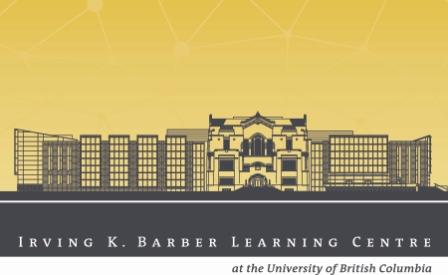
UBC Irving K Barber Learning Centre
Since opening in spring 2008, the Irving K Barber Learning Centre has captivated students, faculty and visitors with its innovative design and service-rich environment. The Learning Centre is dedicated to the University’s academic and community engagement missions, working to support academic excellence and cultivate a sense of community here on campus through space, services, and programming, as well as creating and supporting opportunities for engagement with diverse BC communities.
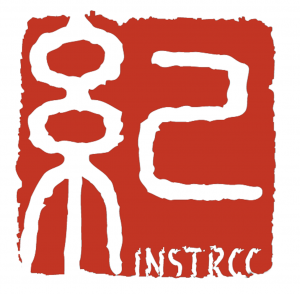
UBC INSTRCC (INitiative for Student Teaching and Research in Chinese Canadian studies)
INSTRCC (Initiative for Student Teaching and Research in Chinese Canadian studies) was created to engage and empower students to conduct crucial and groundbreaking community-based research in Asian Canadian history relevant to the Asian Canadian community.
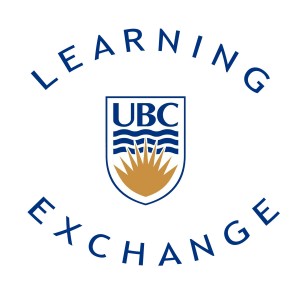
The UBC-CLI, an initiative of the Learning Exchange, is the on-campus entity seeking to achieve the above through the advancement of community service learning (CSL) and community-based research (CBR) at UBC. CSL has three key elements: classroom learning; volunteer work that responds to community-identified priorities; and structured reflection activities that challenge students to make connections between what they are studying and their experiences in the community.
In partnership with UBC courses offered through the Faculty of Applied Science, the Faculty of Arts, the Museum of Anthropology, and the School of Architecture and Landscape Architecture, the UBC-CLI is overseeing a cross-disciplinary CSL partnership in which students, staff, and instructors from each of these divisions will be conceptualizing, designing, and building mobile units for the display of the material collected through the UBC Chinese Canadian Stories project.
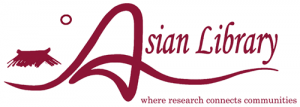
UBC Asian Library
2010 marks the 50th anniversary of the Asian Library. From its inception with the amassing of Chinese and Japanese classics in humanities to being the very place that users at UBC and beyond turn to for information on Asia, Asian Library has filled its shelves, physical and virtual with more than 580,000 items and delivered information on multiple platforms that is rich with databases, web sites, blogs, videos, images, audios and much more. Holdings are in nine languages including Chinese, Japanese, Korean, Hindi, Urdu, Punjabi, Sanskrit, Tibetan and Indonesian. The crown jewels of the collection are the renowned Chinese and Japanese rare books. The on-going plan to repurpose the library space and facilities will position the library to better serve the changing needs of the users.
To underwrite an evolving research interest in Chinese settlement in B.C., Asian Library built a collection of photographs of irregular Chinese migrants. In 2001, we began to spearhead the development of a database of historical Chinese language materials in British Columbia. The online database at “www.hclmbc.org” is built on the strength of existing collections, including a rich body of publications of clan associations from southern Guangdong and the Chinese Times 1914-1992, the longest run of Chinese newspaper in Canada. Recently, we received two valuable family archives, one from the Ron Bick Lee and the other from the Stephen Lok-tin Lee estates. The Korean Canadian Heritage Materials project, a similar endeavor is in the making with yet another one on South Asian diaspora literature in its planning stage.
The education and media professionals at the Teaching and Learning Centre (TLC) offer innovative practices to enhance the student experience at SFU. In strategic partnerships with the university community, we celebrate the creative culture of the teaching and learning network on all three campuses.
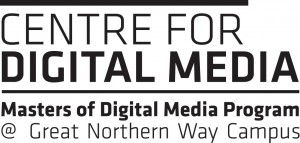 Masters of Digital Media Program at Great Northern Way Campus
Masters of Digital Media Program at Great Northern Way Campus
The Masters of Digital Media Program and the Irving K. Barber Learning Centre at University of British Columbia will work together under the auspices of the Community Historical Recognition Program (CHRP) to create an engaging and immersive web experience that will include digital archives, learning resources as well as mobile museum kiosks. This interactive, digital experience will tell the fascinating story of Chinese Canadians over the course of the last 200 years from the Canadian Pacific Railway and Confederation to the present and future.
The Masters of Digital Media Program is a ground-breaking Master’s degree in entertainment technology and digital media. This powerhouse graduate program combines industry-facing curriculum, real-world projects and a four month internship. The degree is jointly awarded by the four major post-secondary institutions in British Columbia: the University of British Columbia, Simon Fraser University, Emily Carr University of Art + Design and the British Columbia Institute of Technology.
 The Critical Thinking Consortium
The Critical Thinking Consortium
The Critical Thinking Consortium—TC2— is a non-profit association of 60 school districts, post-secondary institutions and teacher organizations working to support critical thinking from kindergarten to graduate school. Over the last fifteen years, this group, whose offices are at UBC, has worked with 65,000 educators to embed critical thinking into their teaching practices across Canada in the United States, England, Israel, India, Hong Kong, the Caribbean, and Finland.
TC2 intends to develop two kinds of learning resources to support student examination of the digital collections: (1) lessons from building of the CPR/the nation and (2) lessons in historical analysis. The resources will embed multiple voices into the study of this significant event—one of the defining developments in the history of Canada. This period will be explored though the lenses and, to the extent possible, the words of key groups, notably the Chinese, First Nations (various groups), Métis and various elements of mainstream society.
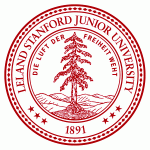 Stanford Spatial History Project
Stanford Spatial History Project
The Spatial History Lab at Stanford University is a place for a collaborative community of scholars to engage in creative visual analysis to further research in the field of history. Our team is comprised of a diverse group of principal investigators, staff, research assistants, affiliates, and collaborators. Our projects operate outside of normal historical practice in five ways: they are collaborative, use visualization, depend on the use of computers, are open-ended, and have a conceptual focus on space.Our publications are the primary direct means by which we intend to impact the discipline. We produce high quality, co-authored, peer-reviewed scholarship for publication in both traditional journals and experimental mediums.
 Faculty of Art
Faculty of Art